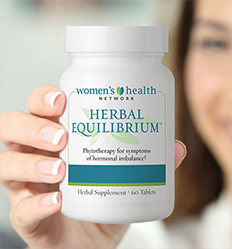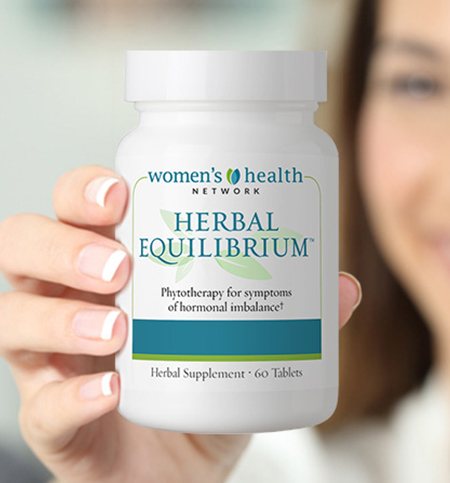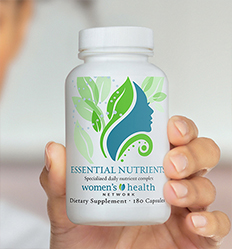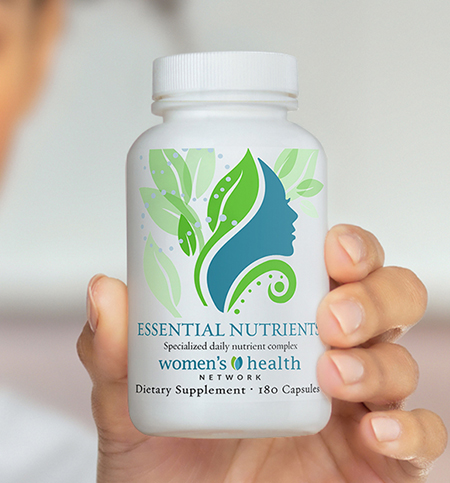Reviewed by Dr. Mary James, ND
Once you’re “postmenopause,” it’s frustrating and discouraging to still be experiencing hot flashes, fuzzy thinking and all the other menopausal symptoms you hoped to leave behind. What’s more, postmenopause can bring on a new set of disturbing concerns, such as urinary incontinence and bone loss.

Many postmenopausal symptoms can still be blamed on hormonal imbalance. After all, we continue to have sex hormones in postmenopause, even though it can be hard to find information about what happens to them once your period has stopped. That’s why we’re sharing our guidance for postmenopause with our favorite health tips for 6 common symptoms. These can help you prevent bone loss, keep your sex life active, slow hair loss and thinning, and avoid serious health issues long after menopause.
6 common postmenopausal symptoms and what you can do
1. Hot flashes
Hot flashes — still? It’s irritating but it isn’t unusual. Continuing hot flashes are often due to the effects of chronic stress on the adrenal glands. When you’re under stress for a long time, the adrenal glands can’t support proper estrogen production, which is desperately needed because ovaries produce less estrogen during postmenopause.
What about spotting and bleeding after menopause?
If you haven’t had your period for 12 months and then experience postmenopausal bleeding — no matter how slight or brief — your best first step is to visit your OB/GYN healthcare provider. It’s often not serious, but it’s important to rule out any serious issues.
Helpful herbs for diminishing postmenopausal symptoms of estrogen deficiency like hot flashes are black cohosh, red clover and kudzu, which are all included in our exclusive Herbal Equilibrium formula.
2. Vaginal dryness
Nearly half of all women between the ages of 40 and 59 suffer from vaginal dryness, which is often traced to decreased estrogen production. Symptoms vary widely — from mild itching and dryness to serious discomfort and painful sex. Vaginal dryness can also dramatically affect your desire for sex.
For many women, the use of vitamin E suppositories or a natural lubricant prior to and during sex may help. Women with more severe dryness related to vaginal atrophy can try applying topical bioidentical estrogen directly to the vagina. You may also want to talk with your healthcare practitioner about other relief options.

3. Hair-thinning and loss
Hair-thinning — and even significant hair loss — is an upsetting concern postmenopause. Imbalances between testosterone and estrogen can worsen over time and cause hair loss, as can a lack of certain nutrients or too much stress.
You can help reset the hair growth cycle and reduce hair-thinning or loss with a low-glycemic-load diet and dietary supplements. Get enough vitamins A and B (especially biotin), as well as vitamins C, D, and E, calcium, magnesium, copper, zinc, iron, and omega-3 fatty acids. Choose a high-quality comprehensive multivitamin such our Essential Nutrients.
4. Urinary incontinence
Problems with urinary frequency or urgency are very common for women later in life, even though many women don’t talk about it. But the sooner you address symptoms of urinary incontinence, the easier they are to treat.
Urinary incontinence can develop due to the thinning and weakening of the pelvic muscles and connective tissues and because of factors like excess weight, insulin resistance and dietary irritants that are considered toxic by the body when ingested. For some women, topical estrogen cream is helpful. Pelvic floor exercises such as Kegels or pelvic physical therapy can strengthen your muscles. Plus, there are newer, minimally invasive surgical options that may help.
5. Bone loss and fracture
Postmenopause increases your fracture risk, but you can still strengthen bone and reduce your likelihood of fracturing. The years right after menopause are especially critical because bone loss tends to speed up before slowing back down within 5-7 years after menopause.
To protect your bones from fracture, you need a wide range of nutrients, including calcium, magnesium, vitamin D, and vitamins K1 and K2. Leading an active lifestyle, walking, going to the gym or even doing yoga helps retain muscle strength and supports the normal, healthy bone-turnover process. Bone loss is such a deeply concerning issue for many women in postmenopause that we’ve worked with expert Dr. Susan E. Brown, PhD to develop a wide range of effective bone-building products and programs.
6. Memory loss
A forgotten name or lost purse can cause any woman in post menopause to worry — Is this the start of serious memory problems?
Changes in estrogen and progesterone balance, along with too much stress, can cause postmenopausal fuzzy thinking and memory lapses. While changes usually aren’t serious, you can take steps that will clear your thinking and make you feel sharper. Studies link a diet rich in omega-3 fatty acids with mood stability and memory preservation in post-menopausal women, as well as long-term protection from serious disease. If you’re concerned about memory loss, try our Memory Solutions with vitamins and specific nutrients proven by scientific studies to be highly effective for supporting healthy brain activity.
What’s next for you? Putting it all together
Just yesterday, a woman told us the second half of life is meant for doing the things you’ve been putting off for so long. This is especially pertinent now that you know what you really want to do, and have the time to figure out your talents. It’s also a perfect time to “give back” and volunteer.
We agree! By supporting your good health and emotional well-being, you build a foundation from which to make your own way and explore so many possibilities — whether it’s pursuing a second career, learning to play the piano, traveling, tending your garden, or caring for your grandchildren. Our article about menopause in different cultures highlights healthy and positive attitudes around the world about menopause and beyond that may be inspiring to you as you discover your own personal answer to the question: What’s next?
We hope this checklist will be helpful in getting started and discovering your own personal answer to the question: What’s next?














